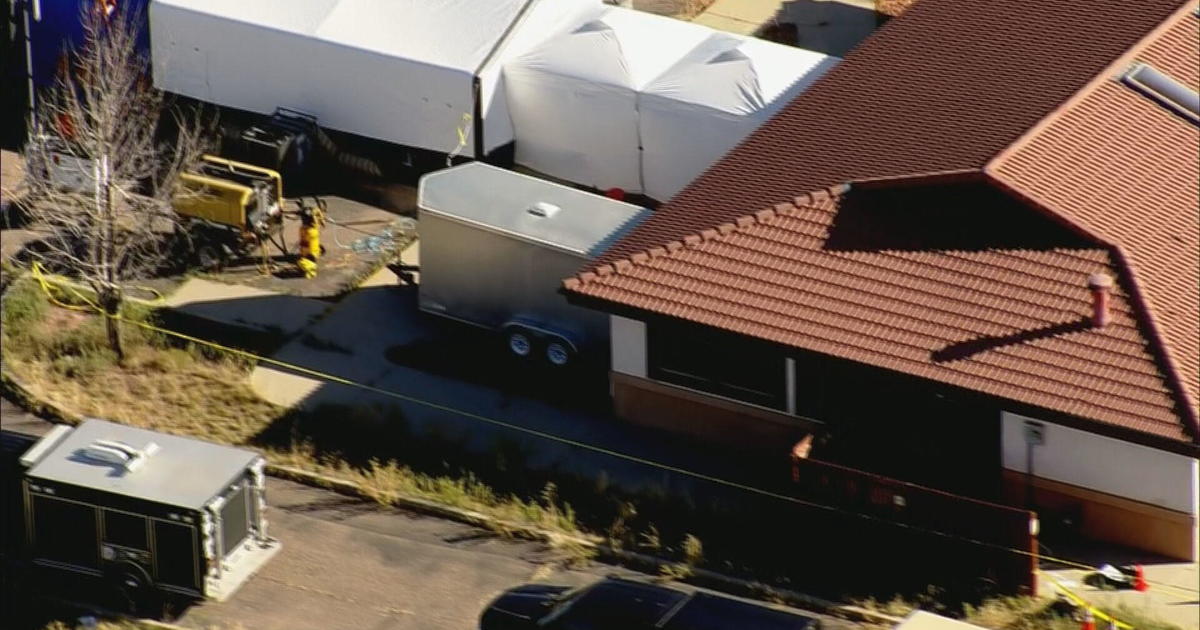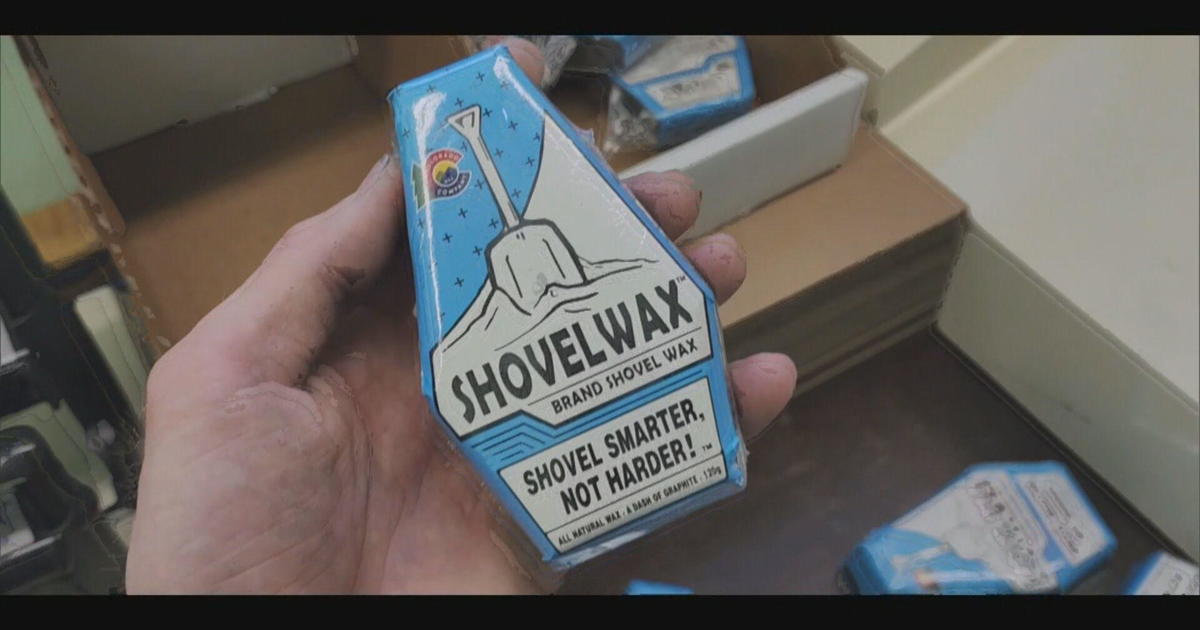CU Altitude Research Gets Lift With Steel Chamber
AURORA, Colo. (AP) - Jack Roach showed no signs of having just finished a tough climb and a tougher descent.
The 11-year-old from the Rocky Mountain School of Expeditionary Learning had just felt the effects of being at an altitude of more than 14,200 feet; he'd come back down to Denver's mile-high altitude of more than 5,200 feet in less than 15 minutes. He hadn't had to travel to Mount Evans for the journey -- Jack Roach made his ascent and descent in an 18-by-10-foot steel chamber in an office building on the Anschutz Medical Campus.
"This is the first time I've gone up," Roach said, standing outside the hypobaric chamber at the University of Colorado's Altitude Research Center. "It's like going in an airplane, just feeling the pressure in your ears."
Last month, Jack Roach joined about 50 of his classmates to take a firsthand tour of the Altitude Center, a research facility devoted to studying the effects of low-oxygen, high-elevation environments. Located in a satellite trailer on the sprawling Anschutz Medical Campus, the Altitude Center is the only civilian research institute dedicated to studying the effects of high elevations on civilians.
Students filed into the center's signature piece of research equipment, a massive steel chamber with vacuum pumps that can simulate the conditions of Mount Everest by manipulating oxygen levels.
Robert Roach, the director of altitude research at the Center and Jack's father, controlled oxygen levels from a control panel on the outside of chamber, as students crowded inside its 180-square-foot central chamber.
"The vacuum pumps are pulling the air out," Robert Roach said before citing his own personal record climb. "I've been to 22,000 feet in the chamber."
The chamber came to the center as a donation from Metropolitan State College in 2002. Drawing on $1 million in funds from the University of Colorado, the staff at the Altitude Center modernized the hyperbolic chamber built around 1940. With new, state-of-the-art equipment and a cosmetic overhaul (the chamber is now painted baby blue), the team updated the chamber to take on the demands of 21st century research.
"It's taking altitude research to the next level," Robert Roach said, pointing to the effects on the group of students inside. "They're coming down from Mount Evans at 2,000 feet per minute."
The massive steel chamber dates from the days of World War II, but Robert Roach and his team of 7 staff researchers at the Altitude Center are using the equipment to understand the effects of high altitude in new ways.
Earlier this month, the Defense Department announced it will grant $4 million to the Altitude Research Center to develop cures for altitude sickness, a condition that's become more prevalent in the past decade for U.S. forces deployed at high elevations. The research center will use the grant funding to research new cures for Acute Mountain Sickness, a condition that most commonly strikes soldiers serving in the high mountain ranges of Afghanistan and Pakistan.
The focus on preparing soldiers for high altitude battlefields represents a shift for the Defense Department. For years, the department devoted its research resources to preparing troops for desert environments, but clashes with al-Qaida in Afghanistan and Pakistan has changed the environmental conditions for many U.S. soldiers.
"Look at a map of Iran's eastern border, look at Afghanistan," Robert Roach said. "There are huge, mountainous regions in some very volatile places ... There's no funding group in the world that has such a vested interest in how people do at high altitudes as the Defense Department."
The grant from the Defense Department will come in two parts: $2.5 million will go toward developing a portable test kit that can be used to diagnose likely AMS patients before they're deployed; $1.5 million will go into acclimatization research at the molecular level.
"We will do all the baseline testing in the chamber," Robert Roach said. "One in four people get acute mountain sickness ... For soldiers, it's not a voluntary thing."
- By Adam Goldstein, The Aurora Sentinel
(Copyright 2011 by The Associated Press. All Rights Reserved.)



